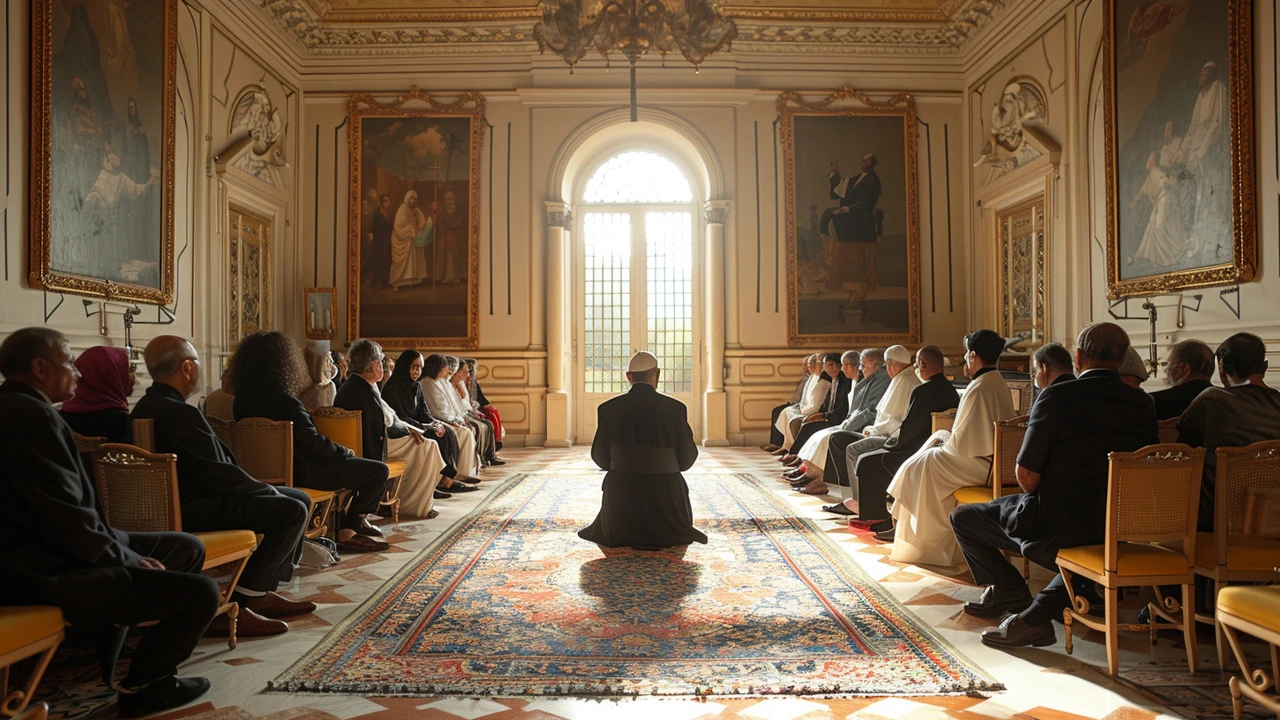
Pope Francis's Call for a Renewed Theological Vision
Pope Francis, in a recent engaging dialogue with members of the International Network for Societies for Catholic Theology (INSeCT), emphasized the urgent need for theology to evolve in ways that resonate with today's societal challenges. His discourse, rich in wisdom, not only reaffirmed the traditional values but also stressed the importance of adapting these age-old principles to better suit our current epoch. This meeting wasn't just a formal gathering but a pivotal moment, highlighting the role of theology in fostering a universal brotherhood and a more profound appreciation for our natural world.
The Pope proposed a comprehensive framework for this theological evolution, which pivots around three central guidelines. First, he advocated for a creative fidelity to tradition, urging theologians to interpret age-old doctrines with a fresh perspective that acknowledges contemporary societal changes. Second, he emphasized the importance of a cross-disciplinary approach in theological studies, suggesting that integrating insights from various fields of knowledge can enrich theological work. Finally, Pope Francis called for the recovery of the sapiential character of theology, or in simpler terms, a theology that acts as a beacon of wisdom and love in human society.
Theological Foundations for a Hopeful Future
The need for a theological reorientation towards a 'theology of love' is grounded in the pressing issues of our times. The Pope specifically pointed to problems such as environmental degradation, social inequality, and a pervasive sense of despair among people as areas where a renewed theology can play a transformative role. By intertwining the spiritual wisdom of religious teachings with practical actions, theology can indeed become a powerful force in leading humanity towards a more hopeful and sustainable future.
This call is not merely about theological innovation but is deeply rooted in the Christian commandment to love one another. Here, Pope Francis connects the dots between love, wisdom, and action, proposing a seamless blend where theology goes beyond academic circles and becomes a lived experience that promotes peace, understanding, and care for the creation.
Implications for Theologians and Academics
The implications of Pope Francis's vision for theologians and academics are far-reaching. By embracing a theology of love, scholars are urged to break out of siloed thinking and embrace interdisciplinary study, considering insights from psychology, anthropology, and even environmental science. Such a holistic approach can help theologize in a manner that is intellectually rigorous and immensely relevant to contemporary issues.
The appeal to go back to a 'sapiential' understanding of theology is particularly impactful. It suggests that theology should not only aim at intellectual engagement but also strive towards imparting wisdom that can be practically applied in everyday life. This sapiential character can make theology accessible and essential to a wider audience, effectively contributing to societal well-being on a global scale.
Broader Impact on Society
The broader implications of a theology of love as envisioned by Pope Francis carry the potential to transform societal structures. Envisioning theology not only as an academic discipline but as a pivotal element in the moral and ethical foundation of society, can help bridge divides and foster a more inclusive global community. Initiatives inspired by this theological approach could address and alleviate many of the social and environmental crises we face today, creating a more equitable and sustainable world.
In conclusion, Pope Francis's advocacy for a theology of love serves as a clarion call for both the religious and the secular world to reconsider the role of theology in modern society. By fostering a discipline that is both wisdom-oriented and practically applicable, theology can indeed become a force for good, guiding humanity towards a future marked by greater fraternity, deeper understanding, and an unwavering commitment to caring for our common home, the Earth.